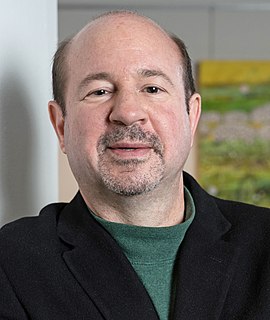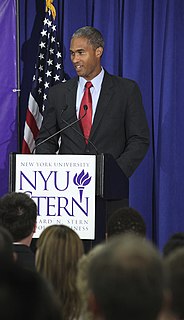A Quote by Vik Muniz
Gramacho is the last landfill that allows people in. Brazil is the leading nation in recycling due to its poverty. There are people there surviving from what they find in the garbage.
Related Quotes
Recycling helps make people feel involved, and in some cases can be useful. Although you've got to do careful life history studies of what you're recycling. If all you're doing is recycling - if you've got three automobiles, and 10 children, and a 7,000-square-foot dot-com palace and second home up in the mountains that has to be heated - the recycling isn't making much difference.
The notion about education has changed and that now it’s sort of much more aligned with, “Well, schools can’t combat poverty. We can’t possibly expect schools to do the work to overcome poverty.” I think that notion which has changed over the last few decades is part, not all, but part of what is maybe leading to people feeling less of a sense of possibility.
It's one thing to be writing in South or Latin America, where, except for Brazil, every country, however small and hard to find on a map, speaks Spanish, but quite another to be writing in, say, Hungary, a landlocked nation of 10 million people, with a language that very few people outside Hungary can read or speak.
A mental disease has swept the planet: banalization the state of affairs, arising out of a struggle against poverty, has overshot its ultimate goal-the liberation of man from material cares-and has become an obsessive image hanging over the present. Offered the choice of love or a garbage disposal, young people of all countries have chosen the garbage disposal.
The U.S. has become the most egregious war-monger and terrorist nation in the world, as well as the long-time leading purveyor of weapons of war throughout the world, and because here at home, we have 50 million of our citizens living in poverty, one in four children surviving on Food Stamps, a collapsing education system, poor health care, and many other disasters, none of which can be addressed as long as the country keeps pouring trillions of dollars into war and militarism. This madness and criminality must end!
What's most striking is that the world as a whole has made remarkable progress against hunger, poverty and disease. I believe in God, and I see that hundreds of millions of people have escaped from poverty in places like Ethiopia, Bangladesh, Brazil and Britain. That's why, for me, it makes sense that this is God moving in our history.
It is obviously easier, for the short run, to draw cheap labor from adjacent pools of poverty...than to find it among one's own people. And to the millions of such prospective immigrants from poverty to prosperity, there is, rightly or wrongly, no place that looks more attractive than the United States. Given its head, and subject to no restrictions, this pressure will find its termination only when the levels of overpopulation and poverty in the United States are equal to those of the countries from which these people are now so anxious to escape.
Between 2001 and 2011, Brazil lifted 20 million people out of poverty and into its growing middle class, and in the last quarter of the twentieth century Botswana's gross domestic product per capita grew faster than that of any other country on the planet. The once-labeled 'Third World' is edging its way into the 'First World.'







































